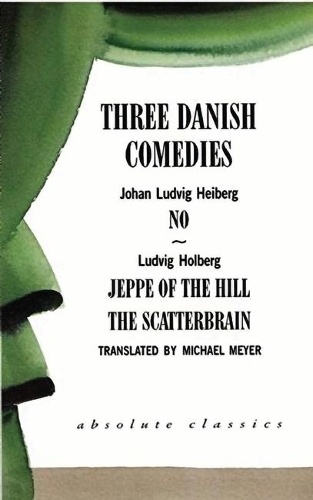
Three Danish Comedies
(Paperback)
Publishing Details
Three Danish Comedies
By (Author) Johan Ludvig Heiberg
By (author) Ludvig Holberg
Translated by Michael Meyer
Bloomsbury Publishing PLC
Oberon Books Ltd
15th September 1999
United Kingdom
Classifications
General
Non Fiction
Plays, playscripts, drama
Essays
839.81208
Physical Properties
Paperback
224
Width 130mm, Height 210mm
Description
Includes the plays No, Jeppe of the Hill and The Scatterbrain Johan Ludvig Heiberg (1791-1860) and Ludvig Holberg (1684-1754) were two of the very few dramatists for whom Henrik Ibsen professed admiration. Heibergs apocalyptic comedy A Soul after Death almost certainly influenced Ibsens own Peer Gynt, but it is for his one-act vaudevilles such as No, translated here by Michael Meyer, that Heiberg is most celebrated. Holberg can justly be described as the father of Danish and Norwegian drama, and he wrote many comedies including Jeppe of the Hill and The Scatterbrain.
Author Bio
Johan Ludvig Heiberg (14 December 1791 - 25 August 1860), Danish poet and critic, son of the political writer Peter Andreas Heiberg (1758 - 1841), and of the novelist, afterwards the Baroness Gyllembourg-Ehrensvard, was born in Copenhagen. Ludvig Holberg, Baron of Holberg (December 3, 1684 - January 28, 1754) was a writer, essayist, philosopher, historian and playwright born in Bergen, Norway, during the time of the Dano-Norwegian double monarchy, who spent most of his adult life in Denmark. He was influenced by Humanism, the Enlightenment and the Baroque. Holberg is considered the founder of modern Danish and Norwegian literature, and is best known for the comedies he wrote in 1722 - 1723 for the Lille Gronnegade Theatre in Copenhagen. Holberg's works about natural and common law were widely read by many Danish law students over two hundred years, from 1736 to 1936. Meyer was born in London and studied English at Christ Church College, Oxford. His first translation of a Swedish book was the novel The Long Ships by Frans G. Bengtsson. He is best known for his translations of the works of two Scandinavian playwrights, Henrik Ibsen and August Strindberg.
